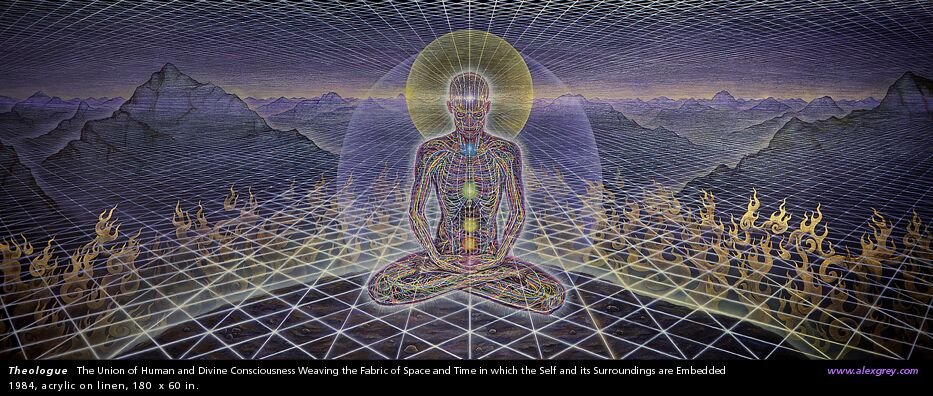Mysterious Butterflies
About four years ago, I was spinning my wheels, working a crappy job and going nowhere when I decided one day to pick an outrageous ambition and go all the way with it. My life needed focus. I began several long months of intense soul-searching. What do I want to accomplish? Which leads to the question of what really matters? I began to review my intellectual life, which really began around the age of 8, when my reading ventured into encyclopedias, atlases, books of science, and philosophy. This interest in the "big picture" has taken various forms throughout the years, leading to an interest in history, poetry, politics, journalism, technology, and finally biology. Here I really started to dig in, working at a zoo and taking some biology courses in community college. I also read several very influential books during this period, including The Age of Spiritual Machines by Ray Kurzweil, The Seven Mysteries of Life by Guy Murchie, and The Lucifer Principle by Howard Bloom.
Finally, I settled on the brain. The reason for this is difficult to articulate simply. Human behavior has always fascinated and sometimes puzzled and even disturbed me. Not just the behavior of other individuals, or the behavior of crowds (in high school, I fantasized about starting riots), but my own behavior. My interest in behavior caused me to contemplate the intricacies of the human mind, which led me to the study of psychology. After some research on the subject, I became estranged from what we call psychology, partially due to bad experiences with psychiatry, and partially due to the subjectivity of the discipline.
At this point, I began to wonder how the brain is correlated with the mind. This line of thought has taken root in my mind, and presumably my brain, with growing strength, ever since. What is the relation of the mind to the brain? Brains can exist without minds, but as far as we know, minds cannot exist without brains. Studying minds is tricky because although we all have one, they are entirely subjective. Science has no traction with the subjective. However, through brain scanning, we can at least correlate the function of the mind with the function of the brain. We can begin, however primitively, to quantify human thought in a meaningful way.
Why is this so important to me? Well, let's take a look at the big picture. From what we know of the geological and fossil record, we can piece together a general timeline of life on Earth. From Prokaryotes to Eukaryotes, to bacteria, to DNA, to fish, to mammals, to humans, what we see are epochs of evolution. One generalization we can make from the available data is that each epoch took less time and resulted in greater intelligence. Intelligence seems to increase exponentially throughout geological time. From what we know of physics and chemistry, it appears that life is an emergent property of matter, and that intelligence is an emergent property of life.
Now, looking specifically at the development human species, we see the exponential evolution of intelligence speed up yet again. From speech, to fire, to the wheel, to agriculture, to cities, to writing, to philosophy, to the printing press, the Renaissance, the enlightenment, the industrial revolution, the computer age, the space age, and so forth, we see that the time between these events grows less and less, so that the computer age and the space age happened simultaneously and bled into the information age, in which we now exist. Scientific breakthroughs happen daily. The speed of computer chips doubles every few years, and has since before I was born. The price point per calculation of not just CPU's, but RAM, and storage devices is greater than exponential.
The human brain is the culmination of billions of years of evolution. And it's inside our fucking heads. I wish to break it open and pour it out, to find its secrets and illuminate them for all to see. And I'm just in time. Neuroscience (or biopsychology, if you prefer) is maturing. Unlike most sciences, there isn't even an overall theory. Biology has Darwinism and Physics has Relativity, but the best Neuroscience can do is the theory of neural function as a basis for epistemology. And there is a shitload of work to do in that area. A colleague of mine warned that I might find the field crowded when I apply for PhD. We should all be so lucky, I replied.
A little under two years ago, I got a job that pays decent money. Now I can save up for a Bachelor's in Neuroscience. I can pay for it in cash. When I tell people my plan to study neuroscience, they often hesitate for a moment and then ask why. I've never been able to muster a satisfactory response. The best reason I can come up with is in a quote from the father of Neuroscience, Santiago Cajal. But first, let me explain Cajal.
In 1899, Cajal mastered Golgi's technique for staining brain tissue for viewing under a microscope. At that time, there was disagreement among anatomists regarding the nature of brain tissue, whether composed of cells like the rest of the body, or a tangled web of threads, as it seemed from viewing under microscopy. Neurons, or nerve cells, had been identified in the body, and a nervous system was generally theorized, but the theory that the brain is composed mainly of these cell was unproven at that time.
Using tissue from a pigeon's cerebellum, Cajal was able to isolate and sketch in great detail two neuron cell bodies, which were connected by many of the fine threads that had puzzled anatomists. His original sketch of these cells, the first record of the neurons of the brain, is below:
Cajal later identified the synapse and did a great deal of the founding work in the field of neuroscience, winning a Nobel Prize in 1906.
When writing his memoir, decades later, he turned to the question of why studying the brain was so captivating to him. His answer is now my answer:
"Really, the garden of neurology offers the researcher captivating spectacles and incomparable artistic emotions. My aesthetic instincts find there full satisfaction. Like the entomologist catching beautiful butterflies, my attention pursued in the garden of gray matter, the delicately and gracefully shaped cells, the mysterious butterflies whose wing beats might some day reveal the secret of mental life."


No comments:
Post a Comment